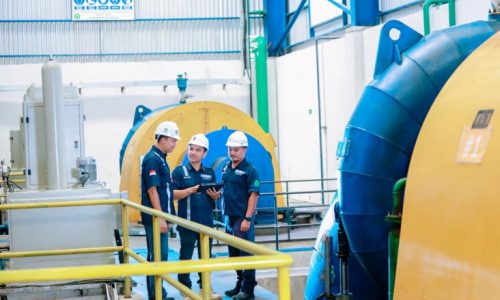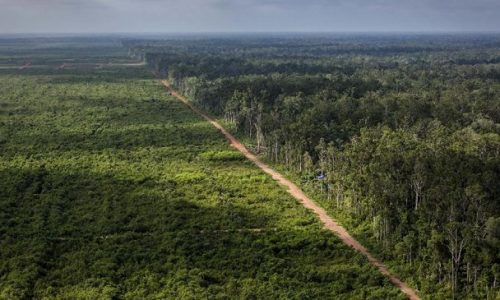Economists have expressed their optimism of higher economic growth in the government of President-elect Prabowo Subianto, but differed on its percentage of achievement over technicalities.
Piter Abdullah Redjalam, Executive Director of Segara Institute, an independent institution focused on research and policy studies of the Indonesian economy, said that broad support is needed for the Prabowo administration’s ambitious economic growth target of eight percent.
“All elements in the country must support this. We, the Indonesian people, should support when the government has the ambition to increase its economic growth,” Piter told Indonesia Business Post on September 26, 2024.
“If our economic growth is only five percent, then our economy is not able to create enough jobs for the growth of our labor force. Unless Indonesia can achieve high economic growth, within the next 10 years, the demographic bonus that we are now enjoying can turn out to be a demographic disaster,” he added.
He cited the Indonesian labor growth of four million per year, while every one percent of economic growth can only create a formal job opportunity for around 250,000 people.
“A five-percent economic growth will only create jobs for 1,250,000 people. It means that 2,750,000 people of the new workforce are not absorbed by the labor market,” he said.
Piter called for a paradigm shift in the country’s economic system in an attempt to reach the growth target.
“Pak Prabowo cannot just continue what has been done by Jokowi. Because Jokowi has proven to fail to reach the growth target of seven percent.” he said, while referring to the achievement of the outgoing president Joko Widodo.
Still, Piter praised Jokowi for his formidable infrastructure development and industrial downstreaming initiatives. He, however, deplored Jokowi’s failure to lead the country’s economy to move forward, citing the continuing high level of corruption as an example.
“If Prabowo just continues Jokowi’s program, rest assured he will fail. So there has to be a clear change in the country’s economic structure,” he said.
He cited inefficiency in the economic structure as shown by Indonesia’s high ICOR (Incremental Capital Output Ratio) of above six, while peer developing countries at between three and four. ICOR is a measure used to assess the efficiency of capital investment in generating additional output, specifically relating investment to GDP. A lower ICOR generally suggests more efficient use of capital, while a higher ICOR indicates less efficiency.
According to Piter, this inefficiency is caused by the country’s weak economic structure, marked by high level of corruption, bribery, and irregularities. He put the blame on poor bureaucracy and law enforcement.
He, however, also named the confusing incentive system as the culprit. “The incentive system in our economy is a lie. As long as the incentive system doesn’t change, our economy will not move forward,” Piter concluded.
Bhima Yudhistira, Executive Director of the Center of Economic and Law Studies (CELIOS), separately said that the Prabo administration’s eight-percent growth target is difficult to achieve.
“The goal is unrealistic as the industrial structure is deteriorating and its share of GDP is falling. Also, the productive sector has not been properly stimulated by the subpar infrastructure and rising public debt. In addition, we are increasingly pushing the people to work in the informal sector, while the income level in the informal sector is lower than the formal one,” Bhima said in an interview with Indonesia Business Post on October 1, 2024.
He said further that the government should not continuously rely on household consumption although household consumption contributes to 56 percent of the total GDP.
“I think there is a way to boost the economy to have six-seven percent growth. We can learn from our neighbors who pursue increase in foreign investment in high-tech products. We can also diversify our export market to Latin America, the Pacific Islands, the Middle East and North Africa,” he said, while citing that Indonesia has been too dependent on China for its export market.
Similarly, Bhima suggested that Indonesia also needs to lower its ICOR, which is now recorded at 6.3.
“If we can’t invite more investors to come, then the efficiency of the investment must be pushed for the better,” he concluded.









